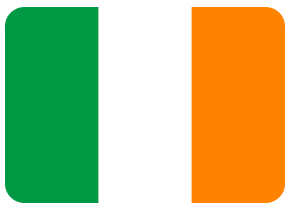Murnaghan 5.01.14 Interview with Sir Tony Robinson, actor
Murnaghan 5.01.14 Interview with Sir Tony Robinson, actor
ANY QUOTES USED MUST BE ATTRIBUTED TO MURNAGHAN, SKY NEWS
DERMOT MURNAGHAN: Now 2014 of course marks 100 years since the beginning of the Great War, the First World War and in August the country will remember the sacrifices made by those who fought and died in that massive conflict. Well today Labour has accused the Education Secretary, Michael Gove, of sewing political division after he criticised the use of programmes like the BBC’s Blackadder to teach children about what happened. Mr Gove claims they have helped to create unpatriotic myths about the Great War. So is he right? Well joining me to discuss this Baldrick himself, he is of course Sir Tony Robinson and he has just written a children’s book about World War One as part of his Weird World of Wonders series. First I want to look at Blackadder’s portrayal of life in the trenches. …. Michael Gove suggesting you are left wing propagandists. I mean first of all when you made it, thirty years ago and more, you were just making a bit of satire weren’t you?
TONY ROBINSON: Yes, I think Mr Gove has just made a very silly mistake. It is not that Blackadder teaches children the First World War. When imaginative teachers bring it in, it is simply another teaching tool. They probably take them over to Flanders to have a look at the sites out there and have them marching round the playground, read the poems of Wilfred Owen to them and one of the things that they’ll do is show them Blackadder. To make this mistake, to categorise teachers who would introduce something like Blackadder as left wing and introducing left wing propaganda is very, very unhelpful and irresponsible for a Minister in charge of education. Ultimately, if you think about it, what it is really doing is just slagging off teachers, it is just another example of slagging off teachers and I don’t think that is professional or appropriate for a Minister.
DM: In your book The World of Wonders: World War One, you make the point that Dr Seldon made and he has written a book about public schools in the First World War, that the huge, the high attrition rate amongst the so-called officer class, many of whom at the time did come from public schools, but they were the first over the ladders, they were the first up on the barbed wire.
TONY ROBINSON: That’s right, there was a higher attrition rate for those young public school boys, I can’t remember if it’s a point I make in the book but I certainly make it in the television series that I am making out in the Australia at the moment about the First World War, but you’ve also got to remember of course that it’s not just about public schools versus other schools but a huge number of other countries were involved. It’s called a World War for a good reason. More young Australians per capita died than British, there was an enormous amount of heroic fighting taking place in Africa, in the Middle East, a lot of Caribbean people were fighting on our side, distinguishing themselves with huge bravery so this idea that somehow World War One ought to be an essay to how things were in Britain and the noble officer class in Britain, it is a very old fashioned fantasy.
DM: But what about this issue of the justness of the War? Was it a just war because children who study it compare and contrast the First World War and the Second World War and it is pretty clear about the reasons for going to war in the Second World War but the First World War, you might say it was two Imperial powers battling each other and they didn’t need to go to war.
TONY ROBINSON: Yes, you could say it was a just war and you could also argue that it was a pretty fatuous war. Some people say we were fighting against German expansion which in a sense is true but in fact we were the most expansive nation in the world. If you looked at the Empire at the time it was more that the Germans were jealous of our Empire and jealous of the French empire. The fact is that there was a huge amount of ignorance among the senior officers, our senior officers in the war, they didn’t understand the kind of war they were fighting, they developed tanks very late, they didn’t develop U-boats in the way that the Germans did, aeroplanes were developed apart from reconnaissance very late in the day. Their model for fighting were the old Imperial wars where we went in with a few machine guns and destroyed a few thousand Sudanese and they kept trying to force that model and in doing so sacrificed hundreds of thousands of lives. They thought they could simply let our officer class get away with it, there is a very serious case to answer.
DM: Well Sir Tony, thank you very much indeed, really good to see you. Sir Tony Robinson.


